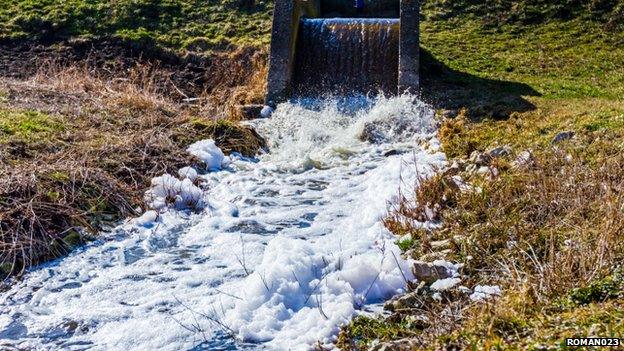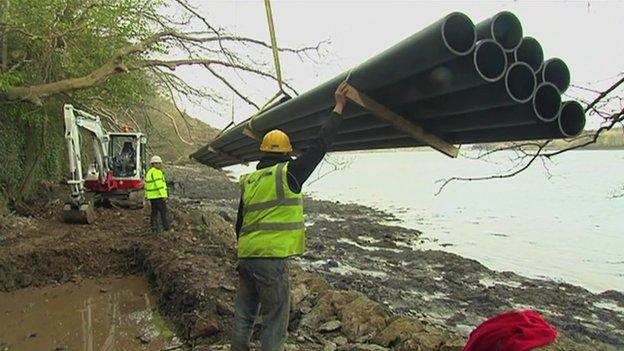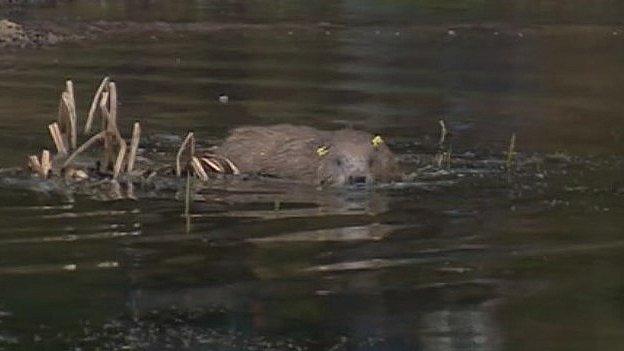River health revealed in 'shocking' figures
- Published

Rivers can become polluted from farms, run-off from roads and sewage works
Just 17% of England's rivers are judged to be in good health, according to Environment Agency figures.
This is down from 29% with a good ecological status in 2014. The analysis is shocking, say environmentalists.
Problems are caused by over-abstraction and pollution from farms, run-off from roads and effluent from sewage works - as well as invasive species.
The Environment Agency says the figures look bad because the EU's assessment criteria have been tightened.
"Threatens wildlife"
The EU asks nations to grade rivers into poor, moderate, good and high. Governments should aim for rivers to be "good" - that is relatively unaffected by human activity. "High" refers to upland streams in sparsely-populated areas.
The statistics show 0.08% of England's rivers are high quality; 17.06 good; 62.4% moderate; 17.22% poor and 3.24% bad.
Rose O'Neill from WWF said: "The figures released today are shocking and show us that things are worse than we thought. This is unacceptable and threatens wildlife and livelihoods.
"It's clear that we are failing our rivers and the wildlife they impact. We need to see government action to restore these rivers, for example by reducing abstraction and tackling pollution."
The Environment Agency feels aggrieved by the ratings.
Previously it used to judge a river based on various chemical tests. Now a river must be subjected to many tests on chemistry, flow and wildlife - and if it fails any single test it cannot achieve "good" status.
It says if you examine the tests individually, 74% of them achieve the highest two scores of good or high status.
Extra measures
A spokesman said the agency has improved or stabilized the condition of nearly 2,000 miles of rivers.
He said: "The Environment Agency will continue to work closely with farmers, businesses and water companies to reduce pollution and improve water quality wherever, and however, possible."
Wildlife groups reject the phrase "wherever possible". They think the agency should be tougher with polluters and farmers who reduce the flow of rivers by taking out too much water.
The future criteria for measuring the health of river are currently under discussion.
Blueprint for Water, a coalition of 16 environmental and fishing organisations, urges the public to respond to the Agency's current consultation on River Basin Management Plans.
Farmers are concerned about who pays for the extra measures needed to meet the EU's rules under the Water Framework Directive.
Follow Roger on Twitter @rharrabin, external
- Published25 March 2015

- Published24 March 2015
